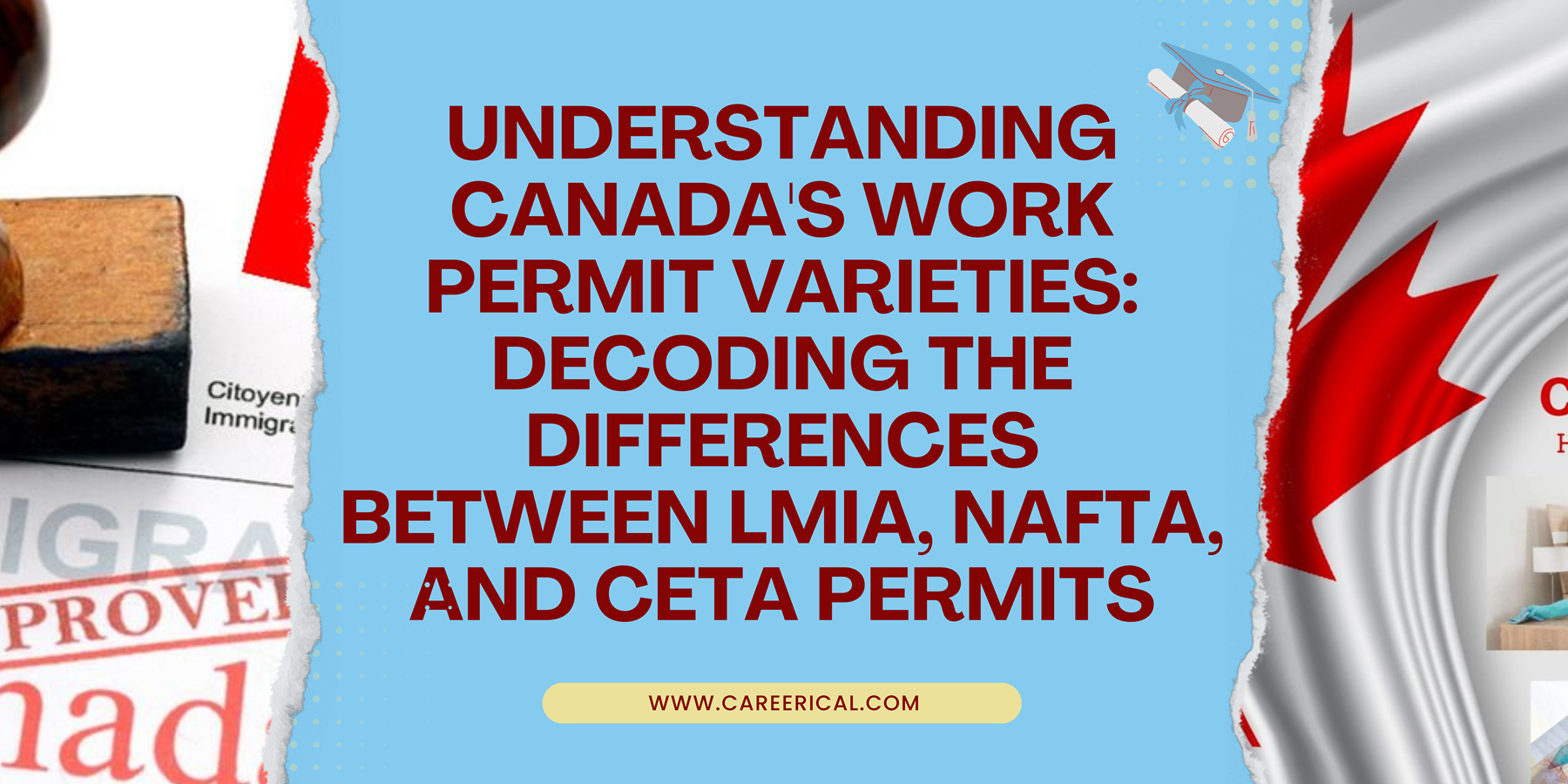🇨🇦 Understanding Canada’s Work Permit Varieties: Decoding the Differences Between LMIA, NAFTA, and CETA Permits
Canada delineates clear differences among the various work permit categories, including the LMIA, NAFTA, and CETA, each distinct in its criteria and application within the Canadian context.
The Labour Market Impact Assessment (LMIA) Process in Canada
In Canada, the process of obtaining a work permit often involves the Labour Market Impact Assessment (LMIA). The LMIA is a critical document, issued by Employment and Social Development Canada (ESDC), which assesses the potential impact of hiring a foreign worker.
A positive LMIA indicates a lack of available Canadian citizens or permanent residents to fill the job, allowing an employer to recruit a foreign national. Conversely, a negative LMIA suggests that the job should ideally be filled by a Canadian citizen or permanent resident.
It’s important to note that foreign nationals themselves cannot apply for an LMIA. Instead, it’s the responsibility of Canadian employers to apply for an LMIA when they wish to hire foreign workers.
While there are scenarios where a foreign worker may be exempt from needing an LMIA or a work permit, obtaining an LMIA is generally a prerequisite for employers under most streams of Canada’s Temporary Foreign Worker Program (TFWP).
Furthermore, for many immigration pathways leading to permanent residency in Canada, demonstrating possession of a positive LMIA is essential to gain points for a Canadian job offer.
Exploring NAFTA Work Permits
The North American Free Trade Agreement (NAFTA), involving Canada, the United States, and Mexico, establishes various trade agreements between these nations. Under NAFTA, there are unique opportunities for citizens of the U.S. and Mexico to obtain authorization to work in Canada.
Eligible individuals under NAFTA provisions might be able to secure employment in Canada without needing a traditional work permit or an LMIA.
Understanding CETA Work Permits
Similarly, the Comprehensive Economic and Trade Agreement (CETA) between Canada and the European Union (EU) has opened doors for EU nationals seeking employment opportunities in Canada.
Under CETA, certain EU citizens may be eligible to work in Canada without the need for a Labour Market Impact Assessment (LMIA) or a standard work permit.
For more detailed information on the various types of work permits and the LMIA process in Canada, including eligibility criteria and application procedures, visit the official website of Immigration, Refugees and Citizenship Canada (IRCC) at IRCC. Additionally, the Government of Canada’s webpage on Temporary Foreign Worker Program (TFWP) provides comprehensive insights, accessible at TFWP.
For more specific information on NAFTA and CETA work permits, you may find useful resources on the Canada Trade Commissioner Service website at Trade Commissioner Service.
By familiarizing yourself with these resources and understanding the various pathways to employment in Canada, you can navigate the Canadian work permit landscape more effectively.
Remember, each work permit type has its own set of rules and requirements, so thorough research and preparation are key to a successful application.
